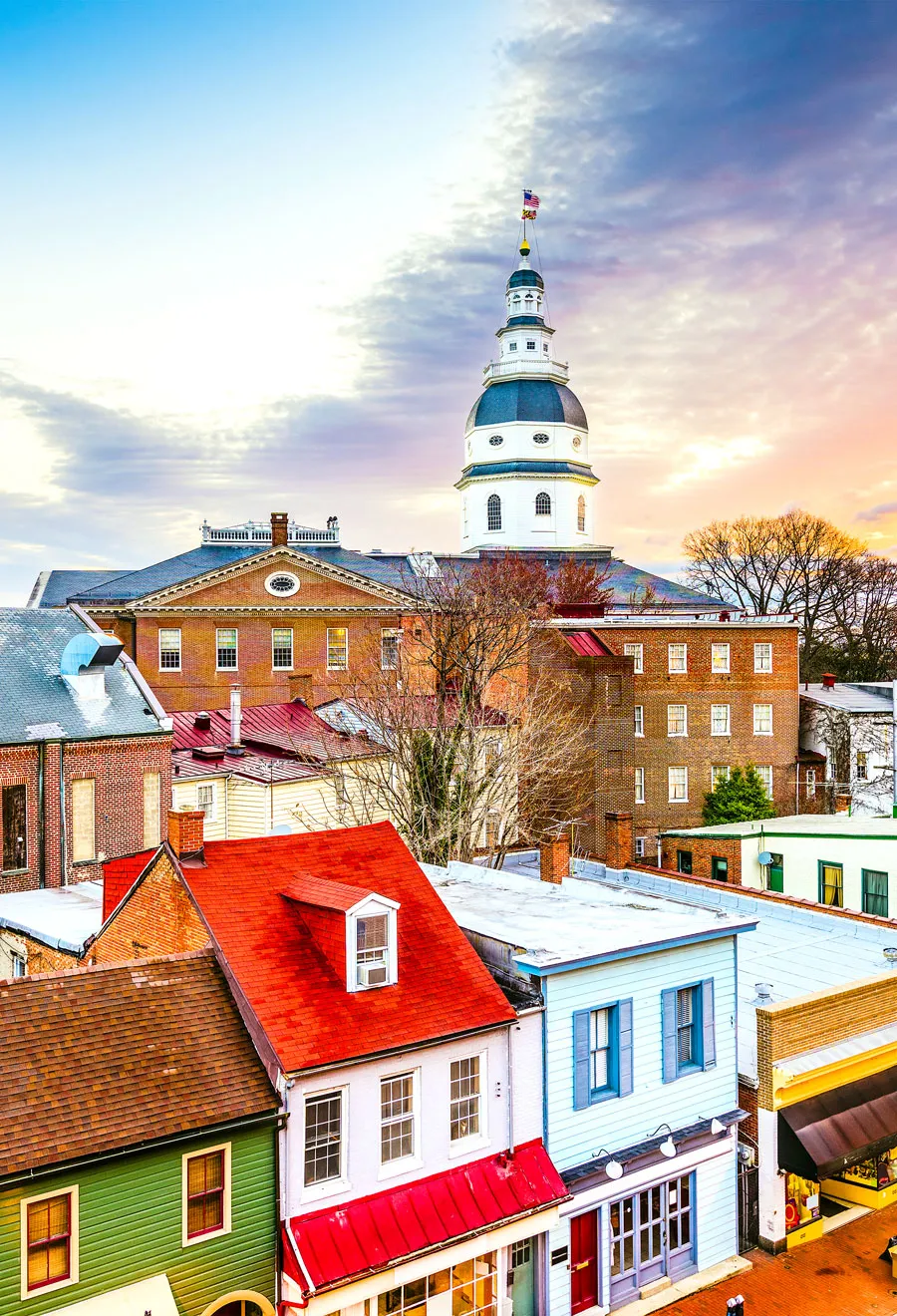Some city nicknames — the Big Apple, the Big Easy, the Windy City — are immediately obvious. Others may leave you scratching your head. From the “Biggest Little City in the World” to the “Athens of America,” these five lesser-known nicknames for U.S. cities prove there’s always more than meets the eye.
Indianapolis, Indiana – “Naptown”
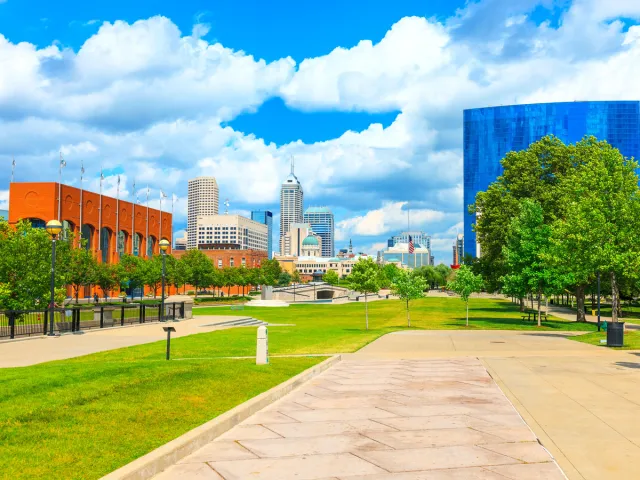
Given its “Naptown” nickname, you might assume Indianapolis is a dull city, but that couldn’t be further from the truth. The term emerged from the 1920s jazz scene, when musicians began shortening Indianapolis to the most prominent syllable, “Nap.” Over time, the nickname gained a negative connotation, suggesting the city was slow or boring. However, locals these days embrace the term, which celebrates the laid-back, relaxed atmosphere that many Indianapolis residents appreciate.
Despite having nearly a million residents, Indianapolis feels more easygoing than many other similarly sized Midwestern cities — and it’s far from boring. From the world-famous Indianapolis Motor Speedway to its thriving food and craft beer scene, the city offers plenty of excitement. Meanwhile, historic neighborhoods such as Old Northside and Irvington add historic charm with their 19th-century homes and architecture.
Reno, Nevada – “The Biggest Little City in the World”
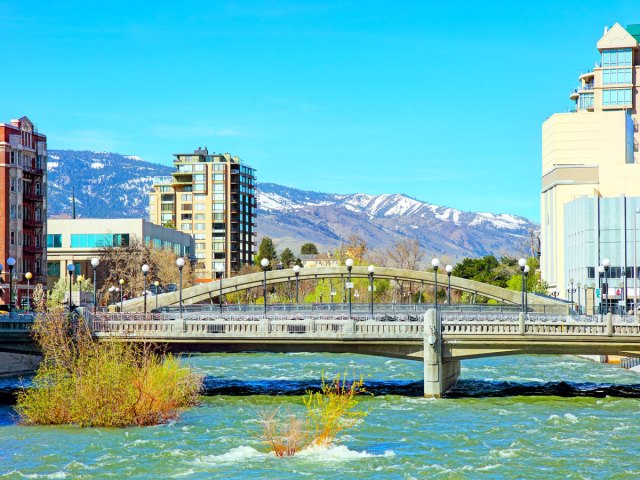
Reno is often overshadowed by the bigger and brighter Las Vegas, about 450 miles to the southeast. But Reno embraces its compact size while proudly offering the perks of a much bigger city with its nickname, the “Biggest Little City in the World.” The founding of the University of Nevada, Reno, in 1874 transformed the city from a railroad stop into a cultural hub, and when Nevada legalized gambling, Reno became one of the first cities to merge hotels with casinos, boosting its tourism and gaming industries.
Today, Reno is a midsize city of under 300,000 people, spread out across 109 square miles. For many travelers, it offers the best of both worlds — it’s close to the Truckee River and Lake Tahoe for outdoor adventures, but the city itself is filled with casinos, resorts, museums, and local markets, all wrapped up in a chill, welcoming vibe.
Sacramento, California – “City of Trees”
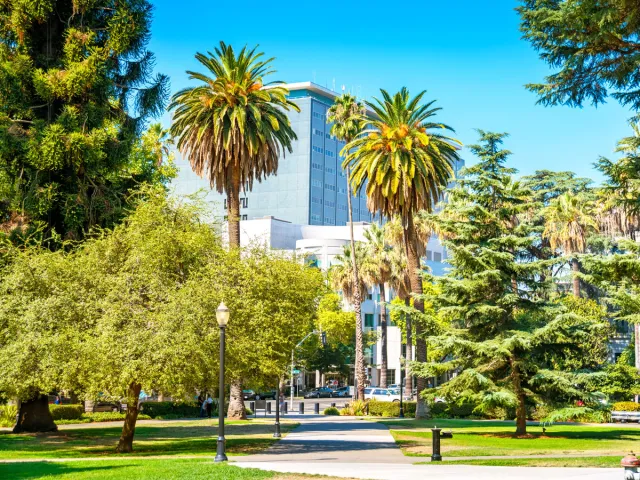
You might be surprised to learn that California’s capital is defined by its lush greenery, particularly its trees. In June 2025, Sacramento doubled down on its commitment to greenery by passing the Urban Forest Plan. This forward-thinking initiative aims to double the city’s current tree canopy by 2045, further enhancing Sacramento’s natural beauty and environmental sustainability.
The importance of trees to the city is nothing new; Sacramento has been known as the “City of Trees” since 1855. However, it was originally dubbed the “City of Plains” due to its lack of greenery; tree planting began as a way to provide shade. Over the decades, community efforts and government initiatives led to Sacramento’s expanding tree coverage, with the neighborhood of Land Park now boasting the densest canopy in the city. Sacramento currently ranks second to Paris for tree coverage per capita, and with its ambitious goal to double the canopy, it could soon claim the top spot.
Hartford, Connecticut – “Insurance Capital of the World”
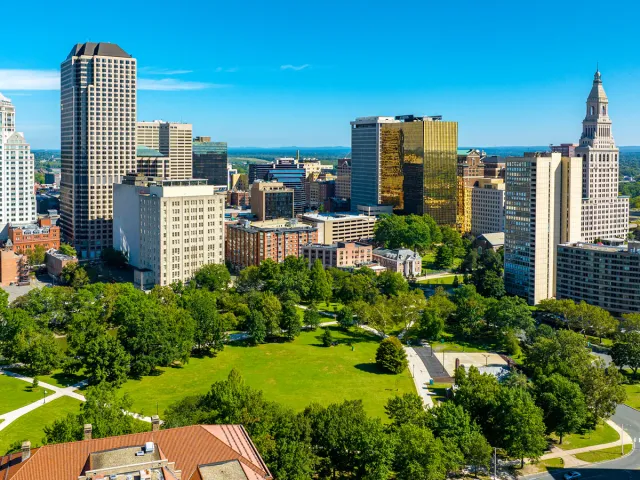
“Insurance Capital of the World” may not be a glamorous nickname, but it is an accurate depiction of what Hartford does best: insurance. The Connecticut capital has long been recognized as a hub for the insurance industry, with major insurers and Fortune 500 companies establishing their headquarters in the city.
Hartford’s connection to insurance dates back to colonial times and is tied to its strategic position on the Connecticut River, which established it as a major trading post between Europe and the Caribbean. Merchants from around the world often met in Hartford and made informal agreements about risk-sharing. These casual agreements laid the framework for more formal arrangements, and the city soon became known as the birthplace of insurance. The Great New York City Fire of 1845, which devastated much of that city’s financial district, led to further growth in Hartford’s reputation as a leading insurance hub. Today, Hartford is home to more than 1,300 insurance providers, solidifying its reputation and ensuring the city’s powerhouse economy for years to come.
Annapolis, Maryland – “Athens of America”
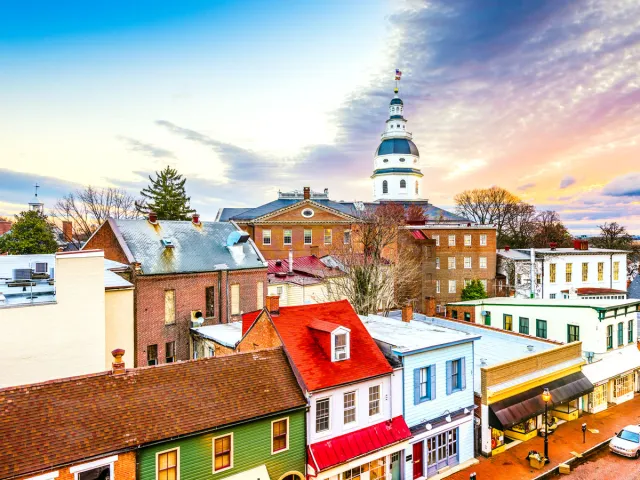
While Annapolis may not physically resemble Athens, it shares deep cultural and historical ties with the Greek capital. Nicknamed the “Athens of America,” Annapolis earns this title through its strong emphasis on the arts and education, as well as its long-standing reputation as a center of democracy and civic life. The city has long valued individual participation in democracy, much like the ideals once held in ancient Athens.
Although Annapolis’ architecture doesn’t date back nearly as far as Athens’ Parthenon, its layout was thoughtfully designed by colonial administrator Francis Nicholson, who modeled the street plan after grand European capitals, incorporating Baroque-style design also seen in cities such as London and Paris. Present-day Annapolis boasts more original 18th-century buildings than any other U.S. city, with the well-preserved city center still exuding a sense of Old World charm and sophistication befitting of the city’s nickname.
More from our network
Daily Passport is part of Inbox Studio, an email-first media company. *Indicates a third-party property.






